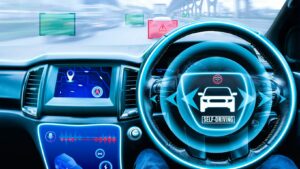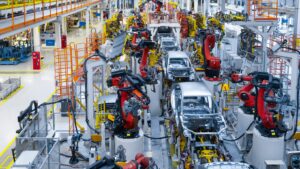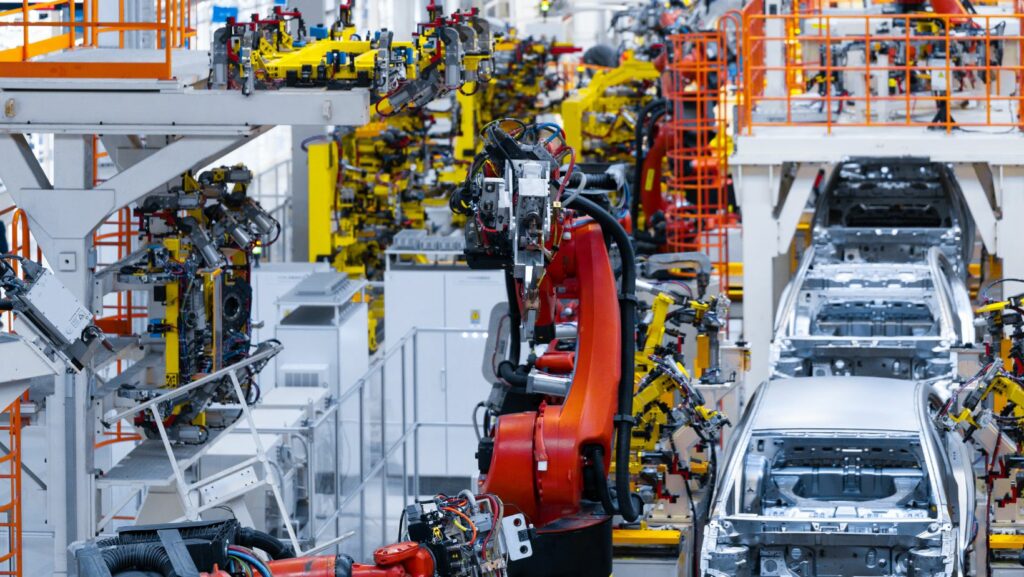In the fast-paced world of technology, the automotive industry stands as a beacon of innovation. This article dives into the thrilling realm of automotive advancements, exploring the intricate webs of design, production, and sales that fuel our modern lifestyle. The automotive industry isn’t just about cars anymore; it’s about creating sustainable, efficient, and technologically advanced machines that redefine our concept of mobility.
Automotive
Tracing the roots of the automotive industry uncovers a fascinating journey filled with pioneering innovations and drastic shifts in production methods. This historical trek enlightens us about how today’s technologically advanced vehicles were meticulously molded from their simplistic ancestors.
Early Innovations in Automobile Design
 In the late 1800s, the design of automobiles underwent drastic changes. The steam-powered vehicles of the early 19th century gave way to electric cars, a technology popular in the late 1800s and early 1900s. However, by the start of the 20th century, most automobiles had adopted internal combustion engines. Inventors like Karl Benz (credited with designing the first practical motorcar) and Gottlieb Daimler played quintessential roles in shaping early automobile design.
In the late 1800s, the design of automobiles underwent drastic changes. The steam-powered vehicles of the early 19th century gave way to electric cars, a technology popular in the late 1800s and early 1900s. However, by the start of the 20th century, most automobiles had adopted internal combustion engines. Inventors like Karl Benz (credited with designing the first practical motorcar) and Gottlieb Daimler played quintessential roles in shaping early automobile design.
Mass Production and Its Impact
The introduction of assembly lines in 1913 transformed not only the auto industry but also the face of modern industry. Henry Ford, recognizing the potential of this method, used it to manufacture his Model T car. His effective use of assembly lines allowed for reduced labor costs and less time spent on each car’s production. With less time needed for production, cars became more affordable, leading to a surge in demand.
Environmental Impact of Automotive Manufacturing
 Following the narrative’s progression from the origins of the automotive industry to its current technological advancements, there’s an arising question as it pertains to the environment – what is the impact of automotive manufacturing? Unavoidably, car production results in environmental perturbations which articulate in two main ways, namely Emissions and Air Quality Concerns, and the gradual implementation of Sustainable Practices in Car Manufacturing.
Following the narrative’s progression from the origins of the automotive industry to its current technological advancements, there’s an arising question as it pertains to the environment – what is the impact of automotive manufacturing? Unavoidably, car production results in environmental perturbations which articulate in two main ways, namely Emissions and Air Quality Concerns, and the gradual implementation of Sustainable Practices in Car Manufacturing.
Emissions and Air Quality Concerns
Automotive manufacturing contributes significantly to air pollution. Processes involved, such as metal working, painting, and engine testing, result in the emission of harmful pollutants. These include volatile organic compounds, particulate matter, and heavy metals. For instance, painting process emits a cocktail of volatile organic compounds which pose human health risks and contribute to smog.
Sustainable Practices in Car Manufacturing
Given the enormous environmental impact, embracing sustainability has never been more crucial for car manufacturers. Some promising trends ensue, marking industry’s turn towards greener practices. Manufacturers have begun introducing end-of-life vehicle (ELV) management programs, focusing on reusing and recycling auto parts. For instance, Toyota’s ELV program recycles around 99% of materials from end-of-life vehicles.
Future Trends in the Automotive Industry
Bearing in mind the past and present of the automotive industry, it’s pertinent to explore its future prospects. The industry’s trajectory points towards major shifts ushered in by emerging technologies and evolved consumer demands.
Electric and Autonomous Vehicles
 A significant trend dynamically transforming the industry landscape is the acceleration of Electric Vehicles (EVs), fueled by a global commitment to reducing carbon emissions. The International Energy Agency projects that by 2030, around 145 million electric vehicles could be on the roads, representing about 7% of the global vehicle fleet. In the fore, powering this shift, are companies such as Tesla, leading the charge in EV adoption. Parallel to the electrification drive, we’re witnessing autonomous vehicle technology becoming a reality. Self-driving cars hold promise to revolutionize transport, potentially increasing safety and efficiency.
A significant trend dynamically transforming the industry landscape is the acceleration of Electric Vehicles (EVs), fueled by a global commitment to reducing carbon emissions. The International Energy Agency projects that by 2030, around 145 million electric vehicles could be on the roads, representing about 7% of the global vehicle fleet. In the fore, powering this shift, are companies such as Tesla, leading the charge in EV adoption. Parallel to the electrification drive, we’re witnessing autonomous vehicle technology becoming a reality. Self-driving cars hold promise to revolutionize transport, potentially increasing safety and efficiency.
Global Markets and Consumer Preferences
Consumer preferences strongly influence the future course of the automotive industry. Observations indicate a trend of consumers favoring SUVs and crossover models over traditional sedans, particularly in North American markets. According to Statista, SUVs accounted for over 47% of total US car sales in 2019, up from 34% in 2015. Interestingly, emerging markets, especially in Asia, are exerting a powerful pull on the global automotive industry. As per McKinsey’s report, nearly half of all global car sales growth from 2010 to 2020 came from China, signaling its rising importance and influence on the automotive world.



